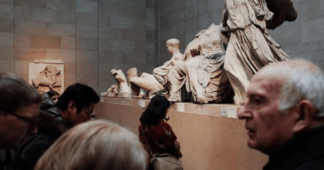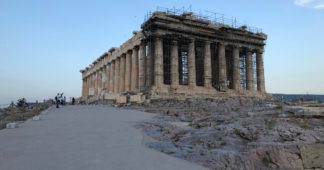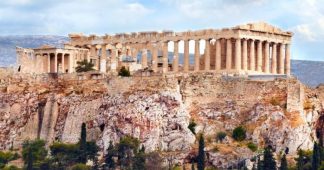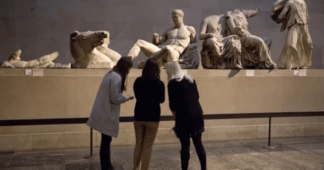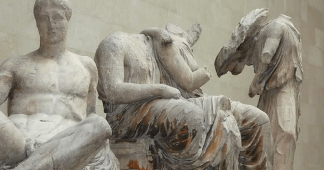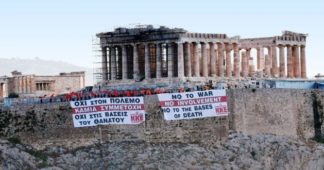Irene Ivanaj
The Freud Museum in London opened its exhibition, Tracing Freud on the Acropolis, on July 26th. The exhibition is entirely dedicated to Freud’s Acropolis.
Sigmund Freud’s only experience at the Acropolis seems to have been an intense one. He was an older man in 1904 and was accompanied by his younger brother, Alexander. As was fashionable for high society of the time, Athens was an obligatory stop in the Grand Tour, and this was no exception for the Viennese brothers. However, they had their travel plans to Corfu disrupted, and they stopped in Athens a while longer than planned.
In his letters, Freud mentions that the first feeling was one of deja-vu. Indeed, the founder of psychoanalysis had seen a replica at the Volksgarten in Vienna, where an exact copy had been commissioned by Napoleon. He wrote to his wife that it “surpasses everything that we’ve ever seen and that one can imagine” and that the view from the citadel was “herrlich” (“splendid”).
That was not all. On the Acropolis, Freud experienced something like a “disturbance of memory” (Erinnerungsstörung). It was something he would later identify and analyze. He spent a long time contemplating this experience and wrote about it years later in a letter to Romain Rolland, a French author and Freud’s friend. “A Disturbance of Memory on the Acropolis” is now considered a seminal work. He considered self-analysis to be just as important, and later expanded on this term, analyzing what he considered to be the structure of derealization.
Continue reading at https://greekreporter.com/2023/08/08/freud-acropolis/
We remind our readers that publication of articles on our site does not mean that we agree with what is written. Our policy is to publish anything which we consider of interest, so as to assist our readers in forming their opinions. Sometimes we even publish articles with which we totally disagree, since we believe it is important for our readers to be informed on as wide a spectrum of views as possible.
